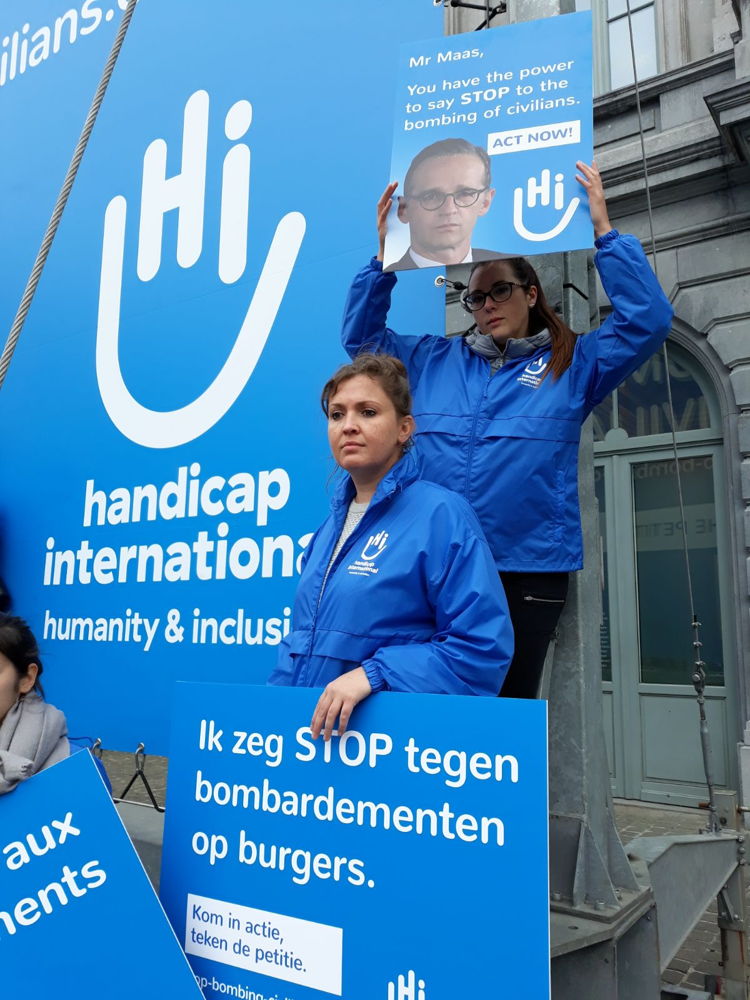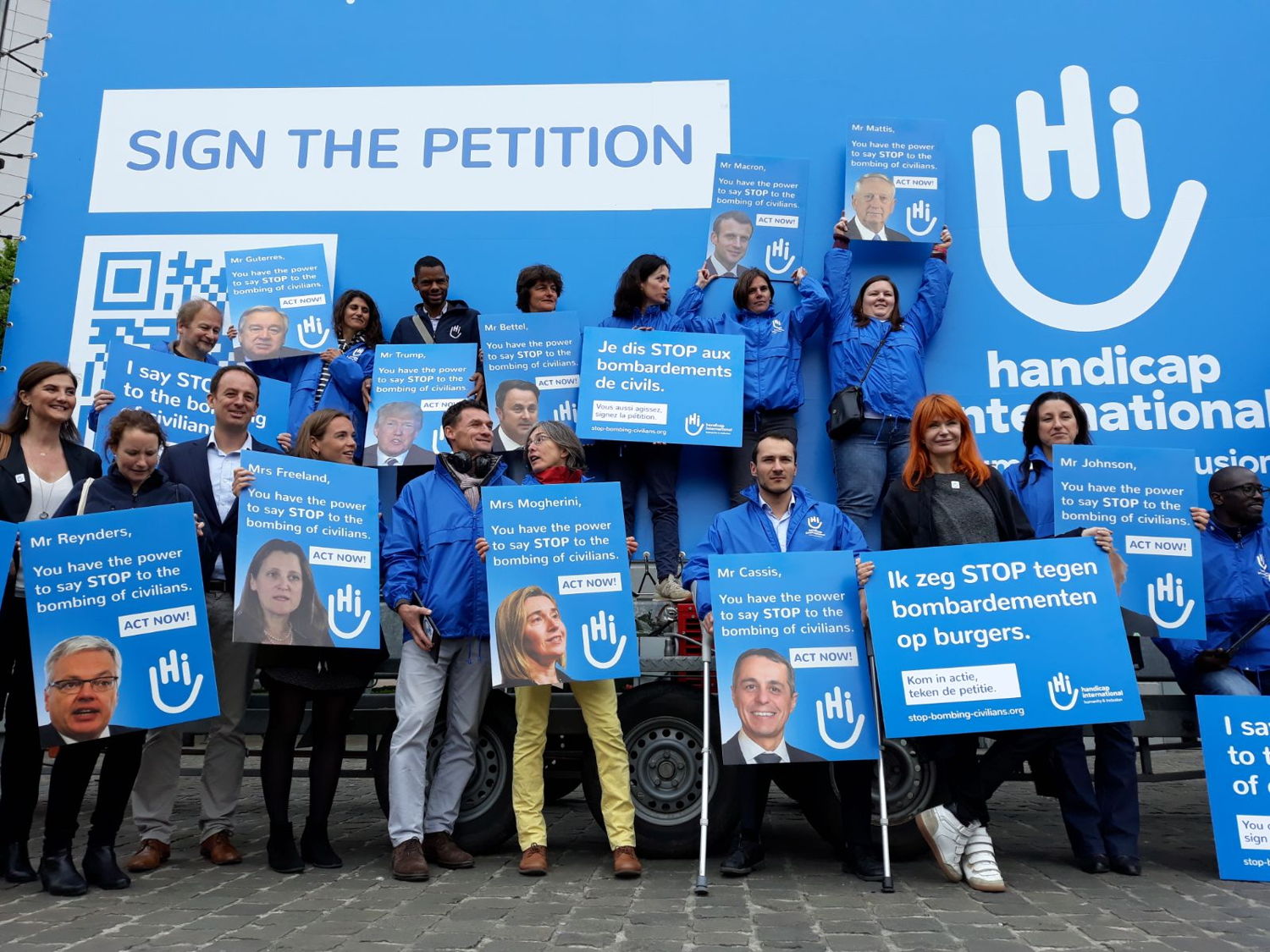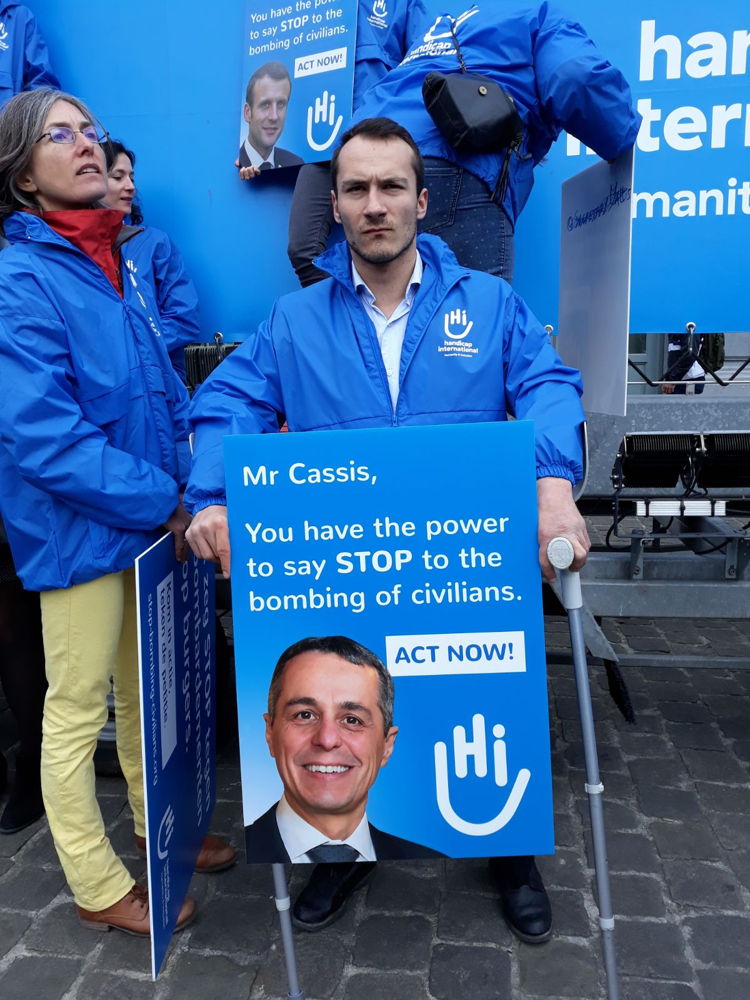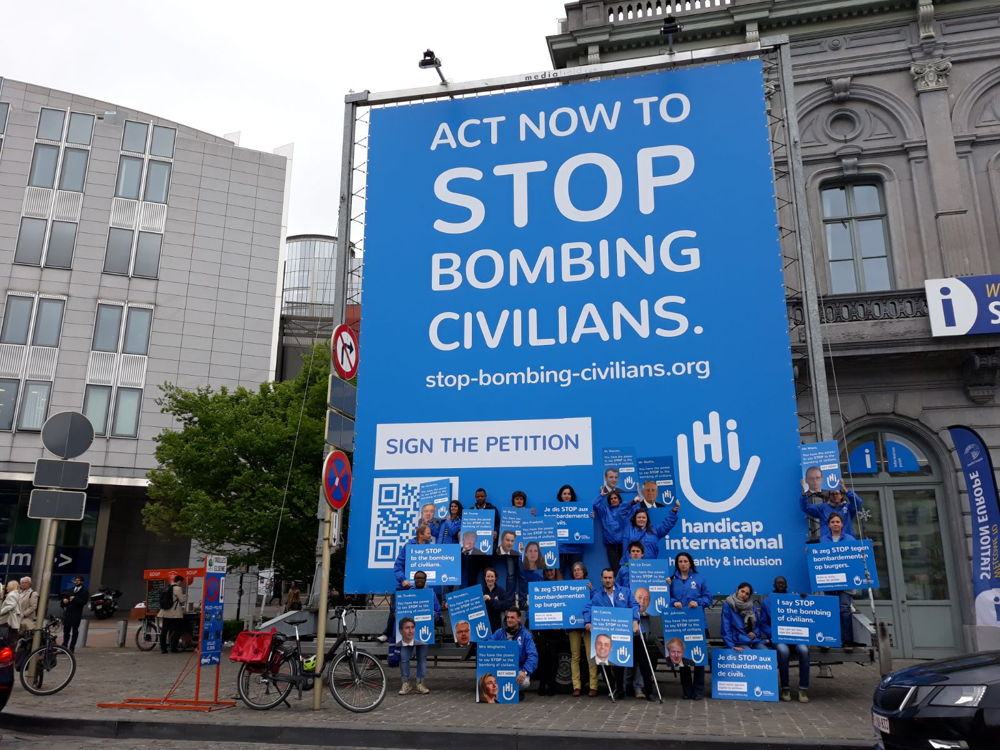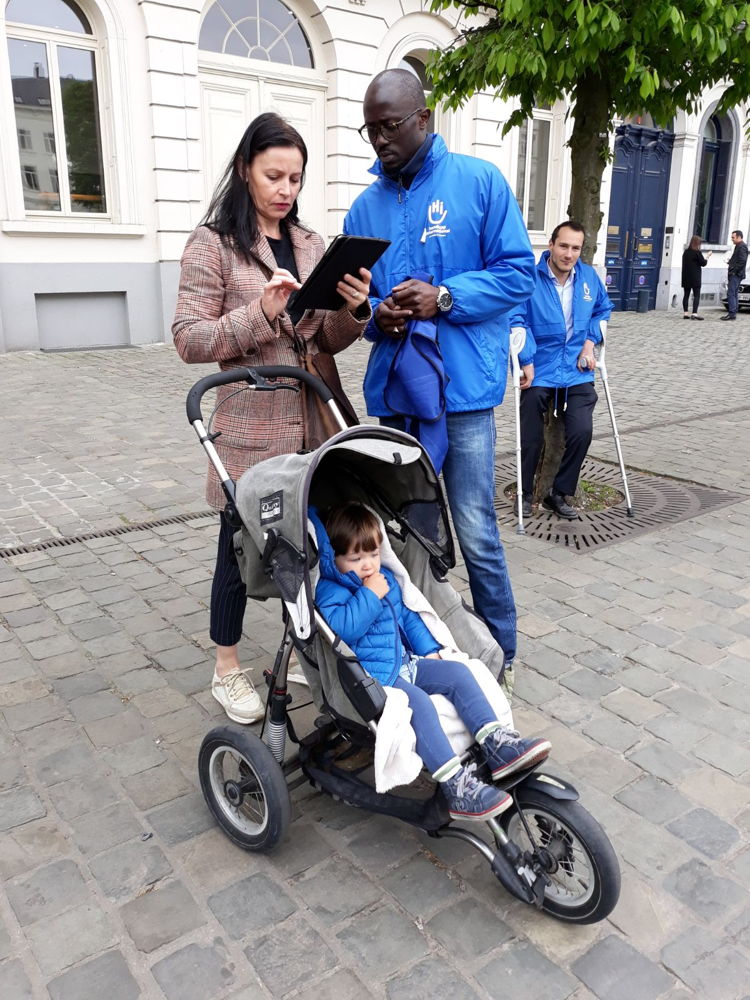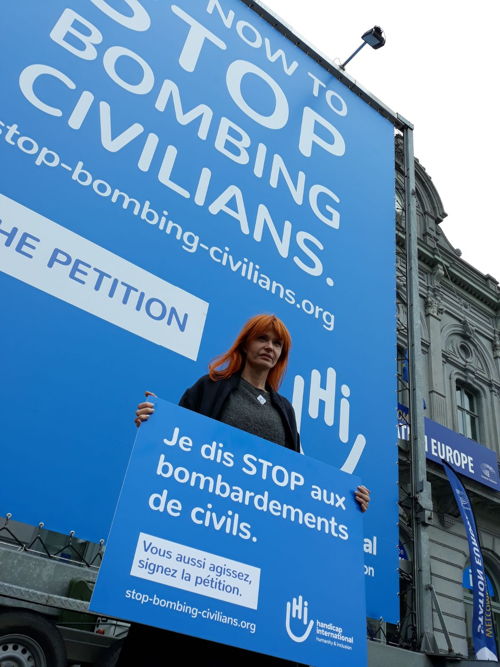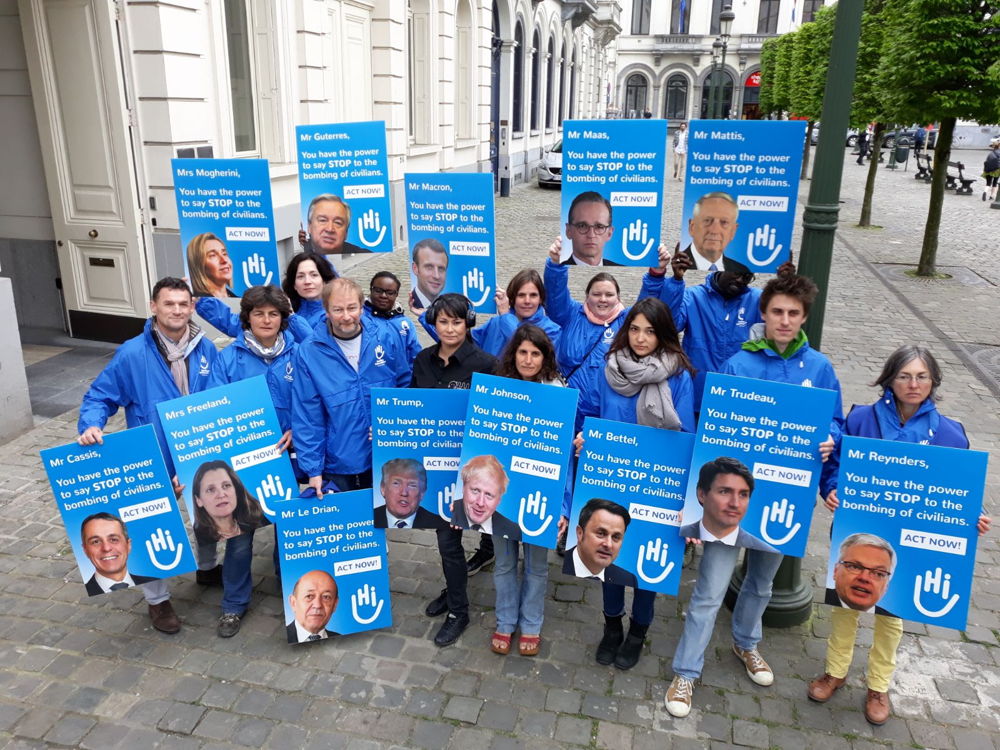Handicap International challenges the international community: act now to stop bombing civilians!
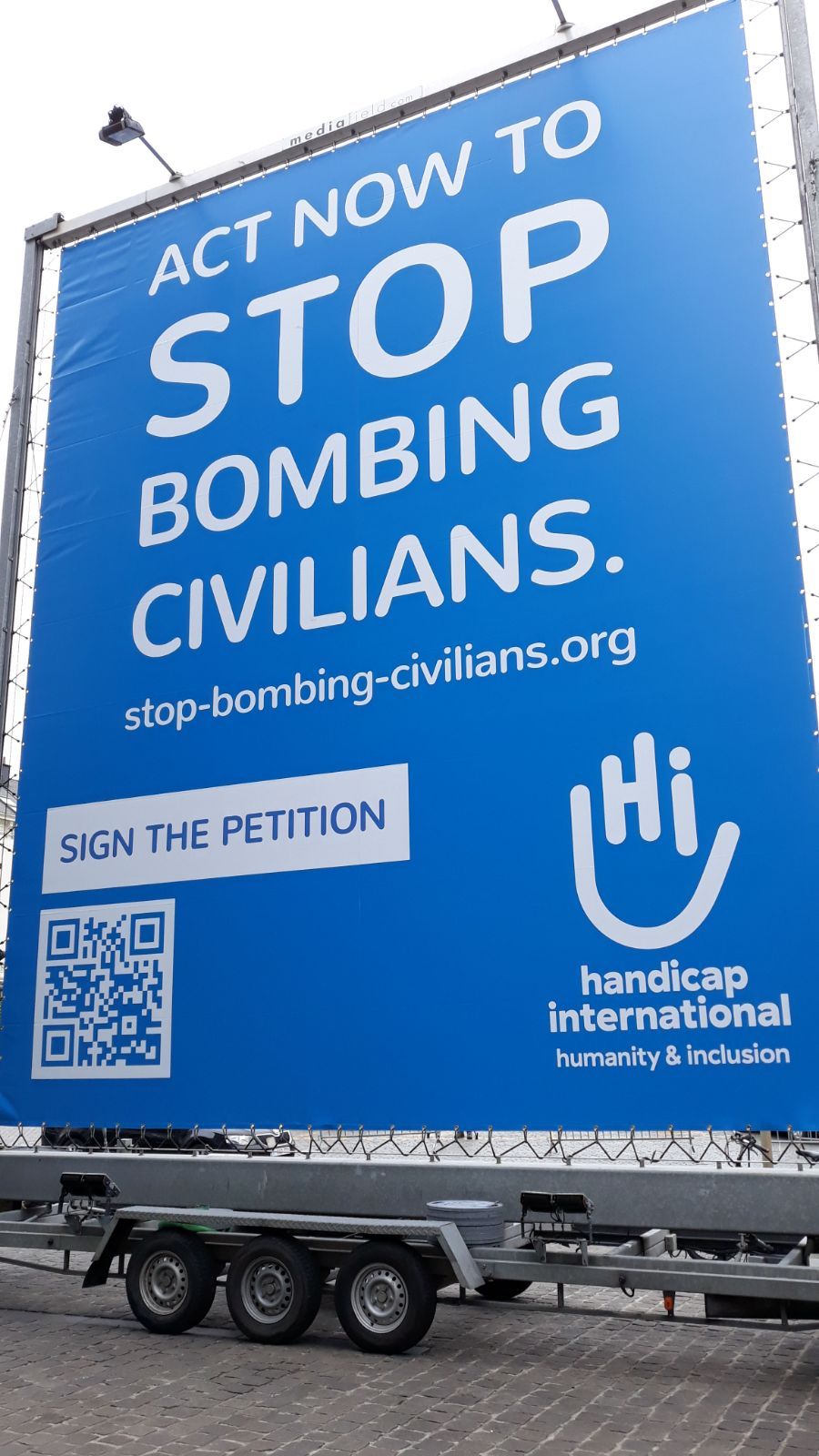
For the Brussels conference on supporting the future of Syria and the region on 24–25 April, Handicap International delivers a clear message to the participants: ‘Protect civilians and humanitarian workers in Syria, give the victims of the conflict hope for the future.’
Handicap International will be attending the conference, and will deliver this message to the participating delegations today and tomorrow. On the sidelines of the conference, Handicap International is challenging political decision makers with a giant billboard over 10 metres high in the heart of the European quarter, bearing the message: ‘Act now to stop bombing civilians.”
Hundreds of passers-by will also have the opportunity to live through an immersive audio experience recreating the sounds of a neighbourhood being bombed, to raise awareness of the fate of civilian populations. Participants will be invited to sign the organisation’s petition, which aims to gather one million signatures by September 2018.
‘Handicap International is leading an international campaign against the use of explosive weapons in populated areas, because it doesn’t have to be that way. Civilians must be protected, and we have the power to act against this situation,’ said Jean van Wetter, Director General of Handicap International in Brussels. He appealed to the public: ‘Public mobilisation is essential to put pressure on political decision makers and force them to act.’
The scars of the Syrian conflict will be visible for decades to come
Handicap International has been providing humanitarian assistance to victims of the Syrian conflict since 2012. Our teams on the ground have directly witnessed the impact of the violence and the bombings on Syrian civilians. ‘Every month, 30,000 Syrians are wounded and need urgent medical care. Of the victims of explosive weapons who have received assistance from HI, 46% will be handicapped for life.’
‘The short and longer-term humanitarian needs are huge, and the commitment of international donors must be up to the task,’ said Mr Van Wetter.
Even once the guns fall silent, it will take a long time before Syrians can live safely in their communities. According to Handicap International, it will take several decades to demine and clear the ground of the thousands of bombs and other explosive remnants of war.
The international community is not doing enough
Handicap International calls on the international community to step up its support for the Syrian population. A delegation from Handicap International will be at the conference to call on participants to increase the support allocated for cleaning up pollution, risk education and assistance to victims, in particular in terms of rehabilitation and psychological support. The international community must ensure that all Syrians have access to humanitarian assistance and that the security of humanitarian workers is guaranteed so that they can provide direct assistance to the population.
Handicap International currently has 500 professionals working in the region to assist the most vulnerable Syrians, including people with disabilities. Its teams provide rehabilitation and orthopaedic fitting services, offers psychological support, ensures the most vulnerable have access to humanitarian aid, raises awareness of explosive remnants of war and conducts mine clearance work.

